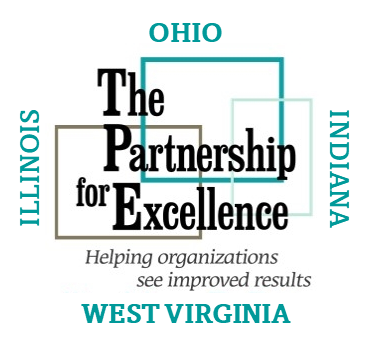Developing Trust in Your People
Earlier this month, my 7-year-old daughter Harper asked to have a playdate. Of course, I was more than willing to oblige. Oftentimes I am the playmate, romping around, making up dance routines, and doing whatever else we can to stay busy until Daddy gets home to save me. Having a friend over means that I get some quiet time to read, do work, and take a break. I texted the other mom and asked what her daughter was doing for the day. She wrote back and asked if driving her crazy counted as an activity. I knew this was going to be a win for both of us. I volunteered to pick up her daughter and bring her to our house to play. As soon as I sent the text, I realized I may have missed a step. This girl had never been to our house before. We knew her from softball, while her mom and I had only spent time together volunteering at school. And I had offered to come pick up her kid. I know I am protective of Harper. I watch her like a hawk when we are out in the world, constantly worrying about her safety and well-being. Harper has only ridden in a car with family members and two other family friends who are just as particular as I am. I would not let Harper ride with just anyone, so why would I think another person wants me driving her daughter? Being the worrier I am, I immediately sent a text explaining that she could drop her daughter off if that made her more comfortable. She reassured me, saying, “Lauren, I trust you. I always take my daughter to playdates, but if I am comfortable with anyone else driving my kid, it’s you.” My job as the driver was to protect her daughter as if she were my own while she was on my watch.
In my former life as a teacher, my most successful years were when I had administrators who supported me and trusted me. They made me feel like I mattered as a person, and they looked out for me as well as I watched out for myself.
Think of how powerful this could be in businesses and organizations. People need to feel valued. They need to trust those who are “in charge” of them, whether that be co-workers, department heads, or CEOs. You need to make connections with people, so they feel supported and trusted. Employees are not dissatisfied with the work they do; they are dissatisfied with not feeling like they matter. When they matter, their work matters. “It is not enough to know “the WHY” of your organization; you must know your people and realize that they are much more than an expendable resource. In short, professional competence is not enough to be a good leader; good leaders must truly care about those entrusted to their care” (taken from Leaders Eat Last by Simon Sinek). Make sure that the people you encounter know you are someone to be trusted. Think of how you demonstrate that to others and be willing to watch out for them as well as you watch out for yourself.
The Baldrige Excellence Framework® explains 11 beliefs and behaviors that are exhibited by high-performing organizations. These Core Values and Concepts are the foundations for success in organizations and allow them to be successful consistently. Valuing People shows that “an organization’s success depends on an engaged workforce that benefits from meaningful work, clear organizational direction, the opportunity to learn, and accountability for success. Valuing the people in your workforce means committing to their engagement, development, and well-being” ( Baldrige Excellence Framework®). I do not know what I did to earn the other mother’s trust, but her text back made me feel incredible. She trusted me with her kid the same way she trusted herself. Hire people that you trust. Trust and encourage them to do their jobs. This in and of itself will help grow your organization’s culture.
Lauren Browning
Director, Training & Administration Services
The Partnership for Excellence

